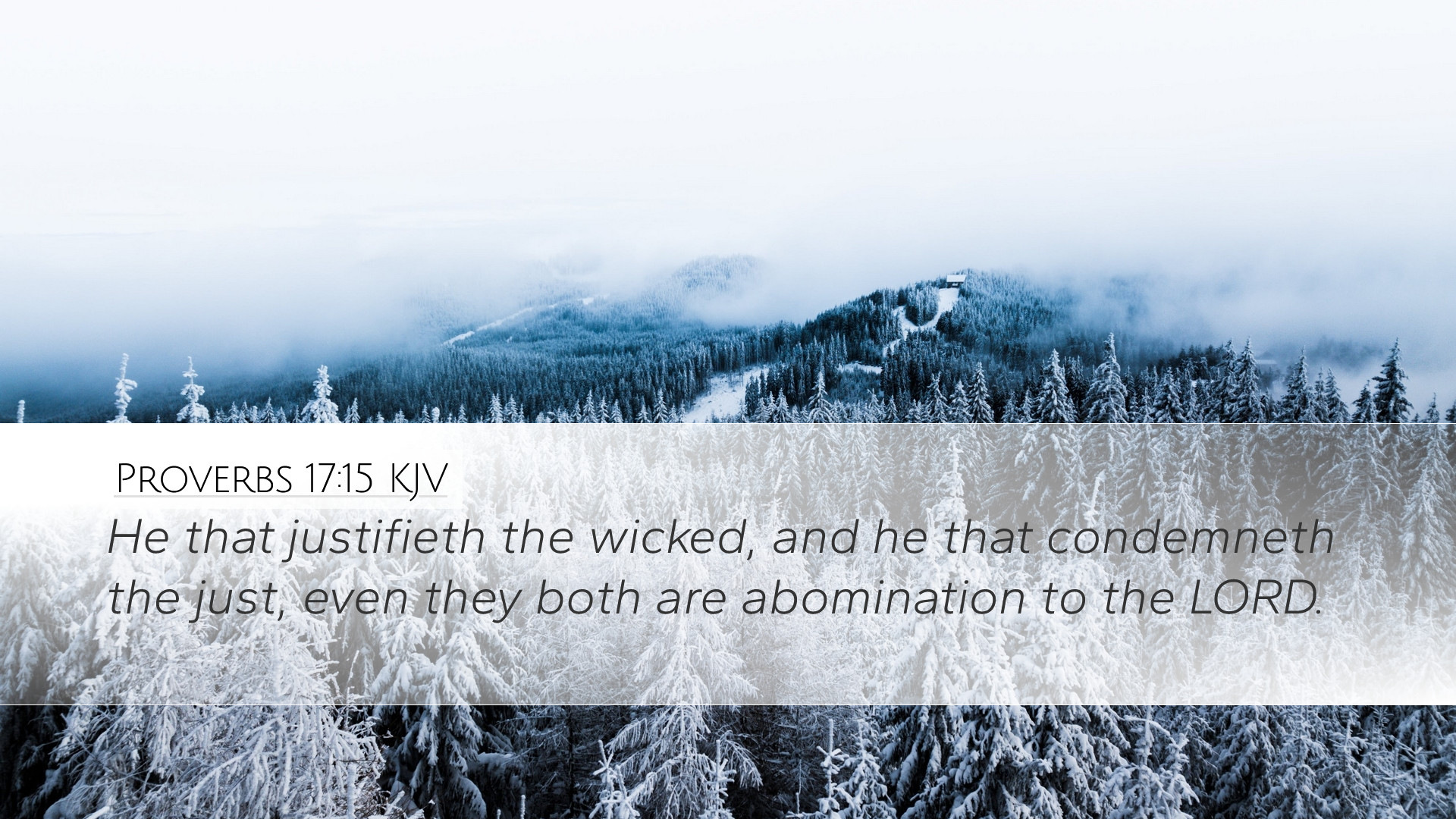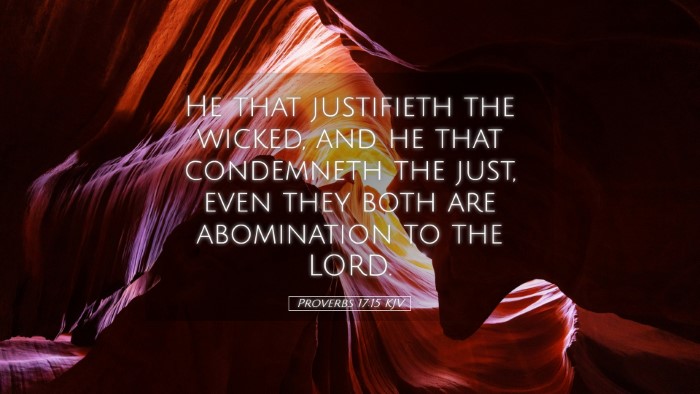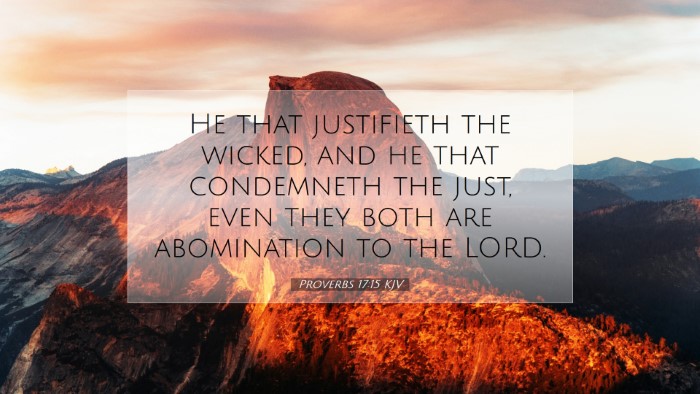Commentary on Proverbs 17:15
Proverbs 17:15 states: "He who justifies the wicked and he who condemns the just, both of them alike are an abomination to the LORD." This verse provides profound insight into divine justice and moral integrity, crucial for pastors, students, theologians, and scholars alike. Here we will delve into insights from prominent public domain commentaries to enrich our understanding of this scripture.
Understanding the Text
This proverb succinctly contrasts two moral extremes: justifying the wicked and condemning the righteous. Both actions are condemned by God, marking them as abominable. The intertwining of morality and divine displeasure brings forth several key themes:
- God's Justice and Moral Law: The verse reflects that God's justice is immutable; He stands firmly against any distortion of justice.
- Integrity of Judgment: It emphasizes the importance of righteous judgment, especially for leaders, teachers, and those in positions of authority.
- Biblical Ethics: The text speaks to the fundamental principles of right and wrong, reinforcing the ethical responsibilities placed upon believers.
Matthew Henry's Commentary
Matthew Henry, in his expository work, elaborates on the moral implications of the actions described. He notes that:
- The justification of the wicked refers to a mistaken endorsement of wrongdoers, where evil is covered, and injustice is overlooked.
- Conversely, condemning the just is when righteousness is vilified—often seen in societal contexts where wrongdoing is celebrated.
Henry reminds us that God views both actions as grievous sins, indicating a deep moral corruption in society. The implications of such behavior foster societal decay and lead to unjust systems.
Albert Barnes' Insights
Albert Barnes provides a detailed exploration of the Hebrew terms used in this verse. He explains:
- The term "justifies" (פָּצָה, paza) signifies declaring someone as innocent, highlighting the weight of an erroneous judgment.
- On the other hand, "condemns" (רָשָׁע, rasha) suggests a wrongful act of denouncing those who are blameless.
Barnes emphasizes the theological implications: God’s abhorrence towards unjust actions stems from His nature as the ultimate judge. When those in power make wrongful decisions, they challenge God’s authority and societal order.
Adam Clarke's Perspective
Adam Clarke offers a rich theological commentary, suggesting that:
- The verse serves as a stark reminder that human judgment can often deviate from divine standards.
- Clarke points out that the proverb warns leaders against making decisions based on favoritism or societal pressure—a theme pertinent in today’s socio-political landscape.
Clarke concludes that both the justification of the wicked and condemnation of the just lead to disastrous consequences not only for individuals but for the nation as a whole.
Application in Ministry and Scholarship
For pastors and theologians, this verse provides essential lessons on maintaining integrity in judging character and actions within church and community settings. The discourse on justice reminds leaders to:
- Uphold unwavering standards of morality in preaching and teaching.
- Teach congregations the importance of discernment in social and political matters.
- Encourage personal integrity and accountability among church members.
Cultural Relevance
In contemporary society, where questions of justice and morality are frequently debated, Proverbs 17:15 becomes increasingly relevant. The verse challenges individuals and organizations to:
- Reject injustice and advocate for the oppressed.
- Encourage transparency and truth in legal and social systems.
Theological Reflection
This passage invites believers to reflect on their own judgments and attitudes towards others. It reminds us that as representatives of Christ, we are called to embody fairness and truth, evaluating situations with a heart aligned with God's righteousness.
Conclusion
In summary, Proverbs 17:15 serves as a powerful reminder of the gravity of our judgments and the divine perspective on justice. Echoing the insights of Matthew Henry, Albert Barnes, and Adam Clarke, we recognize that injustice and the mischaracterization of the righteous lead to profound consequences. Whether in ministry, scholarship, or everyday life, believers are urged to engage with this verse's teachings, cultivating a community that honors God's standards in morality and justice.


